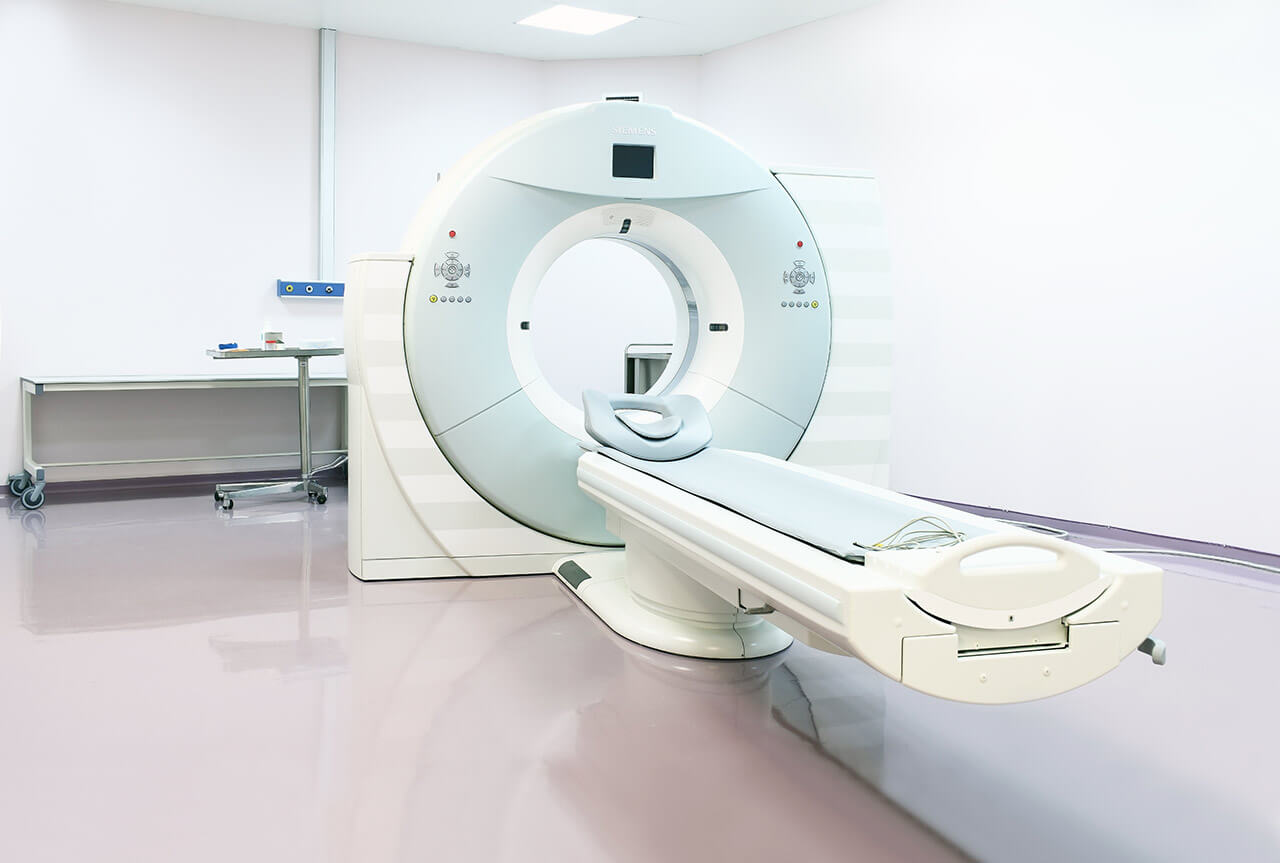
About the Department of Radiation Therapy at HELIOS University Hospital Wuppertal
The Department of Radiation Therapy at the HELIOS University Hospital Wuppertal offers the full range of irradiation procedures for benign and malignant diseases. The department has advanced equipment and highly qualified personnel, which allows providing patients with medical services meeting the highest international standards. The department's specialists have two Varian linear accelerators with a built-in CT scanner with a conical beam and RapidArc technology, Siemens Somatom Definition AS CT scanner for radiation therapy planning, Varian GammaMed iX system for contact radiation therapy using the afterloading technique, Zeiss IntraBeam X-ray therapy device for intraoperative radiation therapy for breast cancer, X-Strahl 200 X-ray therapy device, Varian device for precise positioning of patients before radiation therapy and other equipment. State-of-the-art equipment guarantees high-precision irradiation with minimal damage to healthy tissues. Cancer treatment is of particular interest to the team of the department's radiation therapists. In addition, the department's specialists successfully carry out irradiation for inflammatory joint diseases with severe pain syndrome. The doctors of the medical facility cooperate closely with oncologists and other doctors of related specialties. The Head Physician of the department is Prof. Dr. med. Marc Piroth.
The first stage of the therapeutic process is a consultation with a radiation therapist, during which the specialist talks about the possible radiation therapy options and answers the patient's questions. After that, the doctor and the patient together decide which type of radiation therapy will be the most suitable. Immediately before the start of the course of treatment, the planning of the upcoming radiation therapy using computed tomography is carried out. As a rule, radiation therapy is carried out on an outpatient basis, and the radiation session takes only 15-30 minutes. During the procedure, the patient does not experience painful sensations. The duration of the course of treatment depends on the particular disease and the type of radiation therapy – these are 1-5 radiation sessions for stereotactic surgery and 15-20 sessions for external beam radiation therapy. Most patients tolerate radiation therapy well and do not experience any side effects. In rare cases, patients still develop side effects, but they completely disappear within 2-3 weeks after the completion of treatment.
The department's specialists quite often carry out radiation therapy for breast cancer, which is one of the most common types of oncology in women. Intraoperative radiation therapy is an innovative type of irradiation that has proven to be highly effective in breast cancer treatment. The technique involves the targeted direction of radiation to the tumor bed during surgery. The therapeutic procedure allows the doctors to affect the tumor with a high dose of radiation without affecting healthy adjacent tissues. Another modern type of radiation therapy for breast cancer is respiratory gating radiotherapy. This type of therapy is used in patients with left breast cancer: the position of the internal thoracic organs (heart and lungs) changes during breathing, and respiratory gating radiation therapy reduces radiation exposure to these vital organs. During irradiation, the patient's breathing cycle is monitored using a special sensor, and the transfer of information from the sensor to the control system of the linear accelerator makes it possible to determine the optimal time for irradiation. Thus, the impact on the heart and lungs is minimal, which prevents the development of severe chronic diseases in the future.
The most common oncology in men is prostate cancer. In some cases, radiation therapy is required to kill the malignant cells. For the treatment of prostate cancer, the department's doctors use external beam radiation therapy – intensity-modulated radiation therapy (IMRT), volumetric modulated arc therapy (VMAT) and image-guided radiation therapy (IGRT).
Brain tumors and metastases are treated with stereotactic radiation therapy. This type of radiation is one of the most progressive in modern medicine, since it allows the doctors to direct a high dose of radiation with maximum accuracy to a strictly limited area of the brain. The therapeutic procedure is preceded by CT-guided 3D planning, which guarantees high accuracy and safety of radiation delivery.
The department pays key attention to the treatment of the following diseases:
- Benign diseases
- Inflammatory joint diseases with severe pain syndrome
- Malignant diseases
- Breast cancer
- Uterine and cervical cancer
- Prostate cancer
- Brain cancer and brain metastases
- Colon cancer
- Skin cancer (basal cell carcinoma, malignant melanoma, Merkel cell carcinoma)
- Other pathologies
The department’s range of therapeutic services includes:
- Intensity-modulated radiation therapy (IMRT)
- Volumetric modulated arc therapy (VMAT)
- Image-guided radiation therapy (IGRT)
- Stereotactic radiation therapy
- Intraoperative radiation therapy
- Respiratory gating radiotherapy
- Irradiation of superficial tumors
- Brachytherapy (contact radiation) for cervical cancer treatment
- Combined chemoradiotherapy
- Irradiation for palliative purposes
- Other types of radiation therapy
Curriculum vitae
Prof. Dr. med. Marc Piroth is the Head Physician of the Department of Radiation Therapy at the HELIOS University Hospital Wuppertal. The professor is deservedly a recognized expert in the field of radiation therapy and has additional qualifications in palliative care. Thanks to long experience and clinical practice, Dr. Piroth has gained fame not only in Germany, but also in many other European countries. In parallel with his clinical practice, the doctor is engaged in research activities and lectures at various higher educational institutions. Prof. Marc Piroth is an honorary member of the German Cancer Society and the German Society for Radiation Oncology (DEGRO). He also works in the certification organization OnkoZert of the German Cancer Society (Certification Expert for Breast Centers and Gynecologic Cancer Centers).
Photo of the doctor: (c) Helios Universitätsklinikum Wuppertal




